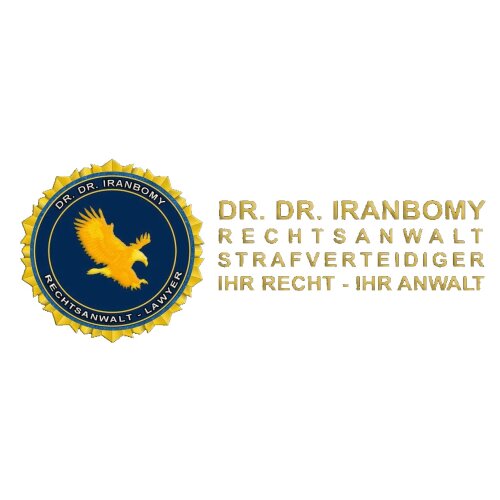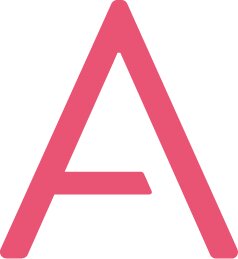Best Energy Regulatory Law Lawyers in Frankfurt am Main
Share your needs with us, get contacted by law firms.
Free. Takes 2 min.
List of the best lawyers in Frankfurt am Main, Germany
About Energy Regulatory Law in Frankfurt am Main, Germany
Energy Regulatory Law governs the legal framework for the generation, transmission, distribution, and supply of energy in Germany, including electricity, gas, and renewable energy. Frankfurt am Main, as a major economic and financial center, is home to numerous energy companies, technology providers, and infrastructure projects. The city is particularly influenced by both German national regulations and European Union directives, given its role in the country's energy sector. Energy Regulatory Law in Frankfurt am Main includes rules on grid access, tariffs, market integration, sustainability requirements, and consumer protection.
Why You May Need a Lawyer
Individuals and businesses in Frankfurt am Main may require legal advice regarding Energy Regulatory Law for several reasons. Common situations include:
- Navigating complex licensing and permitting processes for energy projects such as renewable installations or conventional plants.
- Understanding market entry obligations for energy suppliers and traders.
- Dealing with network access issues or negotiating grid connection agreements.
- Resolving disputes over energy contracts, tariffs, or supply arrangements.
- Ensuring compliance with evolving regulations for environmental protection, emission trading, or renewable energy incentives.
- Participating in energy auctions or tenders.
- Managing regulatory investigations or audits by authorities.
- Assisting with mergers, acquisitions, or restructuring within the energy sector.
Local Laws Overview
In Frankfurt am Main, Energy Regulatory Law is primarily based on national statutes such as the Energiewirtschaftsgesetz (Energy Industry Act), the Erneuerbare-Energien-Gesetz (Renewable Energy Sources Act), and the Gas Network Access Ordinance. These laws set out the legal framework for energy markets, including provisions on non-discriminatory access to energy networks, unbundling of energy supply and network operation, feed-in tariffs for renewable energies, and obligations for grid operators. Frankfurt is also affected by European Union regulations and directives aiming for market liberalization, decarbonization, and consumer protection.
Due to the city's status as a financial and energy hub, local authorities and regulators often work closely with network operators, suppliers, and investors to enforce compliance with these rules. The Bundesnetzagentur (Federal Network Agency) is the main regulatory authority, with jurisdiction over key licensing, tariff approvals, and dispute resolution matters affecting stakeholders in Frankfurt am Main.
Frequently Asked Questions
What is the main regulatory authority for energy law in Frankfurt am Main?
The Bundesnetzagentur (Federal Network Agency) is the main regulator overseeing the energy sector in Frankfurt am Main and across Germany. It supervises grid access, tariffs, market competition, and consumer protection.
Which laws apply to renewable energy projects in Frankfurt am Main?
The most important laws are the Erneuerbare-Energien-Gesetz (EEG) for electricity from renewable sources, and the Renewable Energy Heat Act for heating projects. National and EU regulations may apply depending on the project.
Do I need a permit to operate an energy generation plant?
Yes, most energy generation projects require permits from local authorities or the Federal Network Agency. The permit type depends on the technology, capacity, potential environmental impact, and location of the plant.
How are energy tariffs and prices regulated?
Energy tariffs and network charges are regulated by the Bundesnetzagentur to ensure fair competition and consumer protection. Certain segments, such as small suppliers or self-consumers, may be subject to special rules.
What obligations do energy suppliers have towards customers?
Suppliers must provide safe, reliable, and transparent services. They are obliged to comply with the contract, inform customers about prices, and follow consumer protection rules including the right to change suppliers.
Can disputes with energy companies be resolved out of court?
Yes, many energy-related disputes can be settled through the Bundesnetzagentur's dispute resolution process or through arbitration or mediation, helping to avoid lengthy litigation.
Are there incentives for installing renewable energy in Frankfurt am Main?
Yes, national and local programs offer financial incentives, such as feed-in tariffs, subsidies, and tax credits for eligible renewable energy installations like solar panels or biomass systems.
What are the environmental compliance requirements?
Projects must adhere to federal and state-level environmental regulations. This may include environmental impact assessments, emission controls, and adherence to conservation laws.
How does unbundling affect energy companies?
Unbundling requires the separation of network operation from energy generation and supply to prevent conflicts of interest and encourage competition, as mandated by German and European regulations.
Can foreign companies enter the energy market in Frankfurt am Main?
Yes, Germany's energy market is open to foreign investors and companies, provided they comply with national licensing, regulatory, and security requirements.
Additional Resources
If you are looking for further information or support regarding Energy Regulatory Law in Frankfurt am Main, consider the following:
- Bundesnetzagentur (Federal Network Agency) - Main regulator supervising energy markets and network operations
- Federal Ministry for Economic Affairs and Climate Action (BMWK) - Responsible for legislation, policy, and subsidies in energy matters
- Hessian Ministry for the Environment, Climate Protection, Agriculture and Consumer Protection - Regional authority overseeing environmental aspects of energy laws
- Verbraucherzentrale Hessen - Consumer advice center offering guidance on energy contracts and consumer rights
- German Energy Agency (dena) - Information portal on energy policy, efficiency, and innovation
Next Steps
If you require legal assistance in Energy Regulatory Law in Frankfurt am Main, start by identifying your specific needs, such as compliance support, contract negotiations, or dispute resolution. Gather all relevant documents and background information. Consider reaching out to a specialized law firm or legal advisor with experience in the energy sector. You can also contact regulatory bodies or consumer centers for initial guidance. Prepare to discuss your goals, challenges, and any deadlines you face. Remember, early legal consultation can help you avoid costly mistakes and ensure smooth operations in the complex field of energy regulation.
Lawzana helps you find the best lawyers and law firms in Frankfurt am Main through a curated and pre-screened list of qualified legal professionals. Our platform offers rankings and detailed profiles of attorneys and law firms, allowing you to compare based on practice areas, including Energy Regulatory Law, experience, and client feedback.
Each profile includes a description of the firm's areas of practice, client reviews, team members and partners, year of establishment, spoken languages, office locations, contact information, social media presence, and any published articles or resources. Most firms on our platform speak English and are experienced in both local and international legal matters.
Get a quote from top-rated law firms in Frankfurt am Main, Germany — quickly, securely, and without unnecessary hassle.
Disclaimer:
The information provided on this page is for general informational purposes only and does not constitute legal advice. While we strive to ensure the accuracy and relevance of the content, legal information may change over time, and interpretations of the law can vary. You should always consult with a qualified legal professional for advice specific to your situation.
We disclaim all liability for actions taken or not taken based on the content of this page. If you believe any information is incorrect or outdated, please contact us, and we will review and update it where appropriate.














